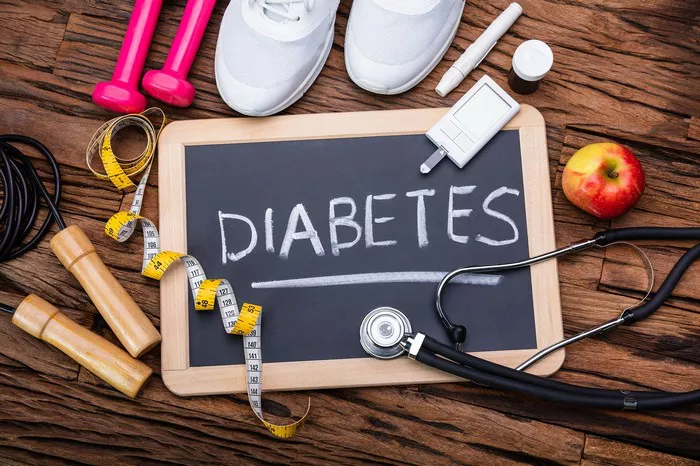Introduction:
Insulin resistance poses a significant challenge for individuals seeking to lose weight effectively. This metabolic condition, characterized by the body’s reduced sensitivity to insulin, can impede weight loss efforts and increase the risk of various health complications, including type 2 diabetes and cardiovascular disease. However, with the right approach and lifestyle modifications, individuals with insulin resistance can still achieve successful weight loss outcomes. In this article, we will explore the underlying mechanisms of insulin resistance, its impact on weight management, and evidence-based strategies for losing weight efficiently while addressing insulin resistance.
Understanding Insulin Resistance:
Insulin, a hormone produced by the pancreas, plays a crucial role in regulating blood sugar levels and facilitating the uptake of glucose into cells for energy production. In insulin resistance, cells become less responsive to the effects of insulin, leading to elevated blood sugar levels and compensatory increases in insulin secretion by the pancreas. Over time, this dysregulated insulin signaling can contribute to weight gain and metabolic disturbances.
Several factors contribute to the development of insulin resistance, including genetic predisposition, obesity, physical inactivity, poor dietary habits, and chronic inflammation. Adipose tissue, particularly visceral fat, releases inflammatory cytokines and adipokines that interfere with insulin action, further exacerbating insulin resistance. Moreover, excessive consumption of refined carbohydrates and sugary foods can lead to rapid spikes in blood sugar levels, promoting insulin resistance and weight gain.
Impact of Insulin Resistance on Weight Management:
Insulin resistance creates a metabolic environment that favors fat storage and inhibits fat breakdown, making it challenging for individuals to lose weight effectively. High insulin levels promote the accumulation of visceral fat, which is associated with an increased risk of insulin resistance, type 2 diabetes, and cardiovascular disease. Additionally, insulin resistance disrupts appetite regulation mechanisms, leading to increased hunger and cravings for high-calorie foods, further perpetuating the cycle of weight gain.
Traditional approaches to weight loss, such as calorie restriction and increased physical activity, may yield suboptimal results in individuals with insulin resistance. Caloric restriction alone can exacerbate insulin resistance and metabolic dysfunction, while excessive exercise may trigger cortisol release and worsen insulin sensitivity. Therefore, a comprehensive and personalized approach to weight management is essential for individuals with insulin resistance.
Strategies for Weight Loss with Insulin Resistance:
- Focus on Macronutrient Balance: Adopting a balanced diet that emphasizes whole foods rich in complex carbohydrates, lean proteins, and healthy fats can help stabilize blood sugar levels and improve insulin sensitivity. Incorporating fiber-rich foods such as vegetables, fruits, legumes, and whole grains can slow down carbohydrate absorption and prevent rapid spikes in blood glucose. Furthermore, including adequate protein in each meal can enhance satiety and promote muscle preservation during weight loss.
- Limit Refined Carbohydrates and Added Sugars: Minimizing the intake of refined carbohydrates and added sugars is crucial for managing insulin resistance and promoting weight loss. Processed foods, sugary beverages, pastries, and desserts should be limited or avoided altogether, as they can lead to rapid fluctuations in blood sugar levels and exacerbate insulin resistance. Instead, opt for whole food sources of carbohydrates, such as sweet potatoes, quinoa, and oats, which provide sustained energy and essential nutrients.
- Practice Portion Control: Monitoring portion sizes and practicing mindful eating can help prevent overeating and promote weight loss in individuals with insulin resistance. Using smaller plates, paying attention to hunger and fullness cues, and slowing down while eating can enhance awareness of food intake and foster healthier eating habits. Additionally, dividing meals into smaller, more frequent portions throughout the day can help stabilize blood sugar levels and prevent excessive insulin secretion.
- Incorporate Regular Physical Activity: Engaging in regular physical activity is essential for improving insulin sensitivity, promoting weight loss, and enhancing overall health. Both aerobic exercise and resistance training have been shown to reduce insulin resistance and support weight management in individuals with insulin resistance. Aim for at least 150 minutes of moderate-intensity aerobic activity or 75 minutes of vigorous-intensity activity per week, along with two or more days of strength training exercises targeting major muscle groups.
- Prioritize Stress Management and Sleep: Chronic stress and inadequate sleep can contribute to insulin resistance and hinder weight loss efforts. Implementing stress-reduction techniques such as mindfulness meditation, deep breathing exercises, and yoga can help lower cortisol levels and improve insulin sensitivity. Additionally, prioritizing quality sleep by maintaining a consistent sleep schedule, creating a relaxing bedtime routine, and optimizing sleep environment can support metabolic health and facilitate weight loss.
- Seek Professional Guidance and Support: Consulting with a healthcare professional, such as a registered dietitian or endocrinologist, can provide personalized guidance and support for weight loss in individuals with insulin resistance. A healthcare provider can conduct a comprehensive assessment of metabolic health, develop an individualized nutrition and exercise plan, monitor progress, and adjust treatment as needed. Additionally, joining a support group or working with a health coach can offer accountability, motivation, and encouragement throughout the weight loss journey.
Conclusion:
Losing weight with insulin resistance requires a multifaceted approach that addresses underlying metabolic dysfunction, promotes healthy lifestyle habits, and fosters sustainable behavior change. By focusing on macronutrient balance, limiting refined carbohydrates and added sugars, practicing portion control, incorporating regular physical activity, prioritizing stress management and sleep, and seeking professional guidance and support, individuals with insulin resistance can achieve successful weight loss outcomes and improve their overall health. Empowering individuals with the knowledge and resources to make informed choices and adopt lifelong habits is essential for managing insulin resistance and preventing associated complications. With dedication, perseverance, and the right support system, weight loss is achievable for individuals with insulin resistance, leading to improved metabolic health and enhanced quality of life.
Related topics:
What Are The Sites Of Insulin Resistance?

























